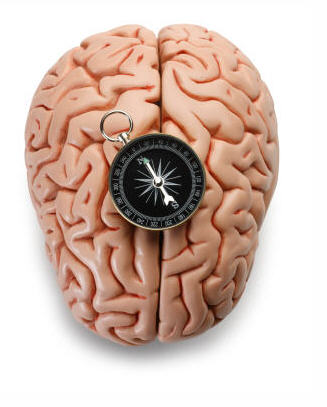
Empathy Plays a Role in Resolving Classic Ethical Dilemmas
CHESTNUT HILL, MA; May 22, 2013—Is it permissible to harm one to save many? Those who tend to say "yes" when faced with this classic dilemma are likely to be deficient in a specific kind of empathy, according to a report published in the scientific journal PLOS ONE.
Philosophers and psychologists have long argued about whether there is one "right" answer to such moral questions, be it utilitarian ethics, which advocates saving as many as possible, even if it requires personally harming an individual, or non-utilitarian principles, which mandate strict adherence to rules like "don't kill" that are rooted in the value of human life and dignity.
In their new report, co-authors Liane Young, an assistant professor of psychology at Boston College, and Ezequiel Gleichgerrcht of the Institute of Cognitive Neurology and Favaloro University in Argentina, address two key questions related to moral decision-making: First, what specific aspect of emotional responding is relevant for these judgments? Second, is this aspect of emotional responding selectively reduced in utilitarian respondents or enhanced in non-utilitarians?
"A number of recent studies support the role of emotions in moral judgment, and in particular a dual-process model of moral judgment in which both automatic emotional processes and controlled cognitive processes drive moral judgment," explained Young. "For example, when people must choose whether to harm one person to save many, emotional processes typically support one type of non-utilitarian response, such don't harm the individual, while controlled processes support the utilitarian response, such as save the greatest number of lives. Our study showed that utilitarian judgment may arise not simply from enhanced cognitive control but also from diminished emotional processing and reduced empathy."
The researchers' findings show there is a key relationship between moral judgment and empathic concern in particular, specifically feelings of warmth and compassion in response to someone in distress. In a series of experiments, utilitarian moral judgment was revealed to be specifically associated with reduced empathic concern, and not with any of the demographic or cultural variables tested, nor with other aspects of empathic responding, including personal distress and perspective taking.
The study of 2748 people consisted of three experiments involving moral dilemmas. In two of the experiments, the scenario was presented to participants in both "personal" and "impersonal" versions.
In the first experiment's "personal" version, participants were told they could push a large man to his death in front of an oncoming trolley to stop the trolley from killing five others in its path. In the "impersonal" version, participants were told they could flip a switch to divert the trolley.
In the second experiment's "impersonal" scenario, participants were given the option of diverting toxic fumes from a room containing three people to a room containing only one person. In the "personal" scenario, participants were asked whether it was morally acceptable to smother a crying baby to death to save a number of civilians during wartime.
The final experiment included both a moral dilemma and a measure of selfishnessnes. The moral dilemma asked participants if it was permissible to transplant the organs of one patient, against his will, to save the lives of five patients. In the selfishness measure, participants were asked if it was morally permissible to report personal expenses as business expenses on a tax return to save money. This experiment provided the researchers with a sense of whether utilitarian responders and selfish responders are alike in having lower empathetic concern. In other words, do utilitarians endorse harming one to save many simply because they endorse harmful, selfish acts more generally? The results suggest that the answer is no; utilitarians appear to endorse harming one to save many due to their reduced empathic concern and not due to a generally deficient moral sense.
In each experiment, those who reported lower levels of compassion and concern for other people—a key aspect of empathy—picked the utilitarian over the non-utilitarian response.
However, other aspects of empathy, such as being able to see the perspective of others and feel distress at seeing someone else in pain, did not appear to play a significant role in these moral decisions. Similarly, demographic and cultural differences, including age, gender, education and religiosity, also failed to predict moral judgments.
"Diminished emotional responses, specifically, reduced empathic concern, appear to be critical in facilitating utilitarian responses to moral dilemmas of high emotional salience," the researchers concluded. "
REFERENCE:
